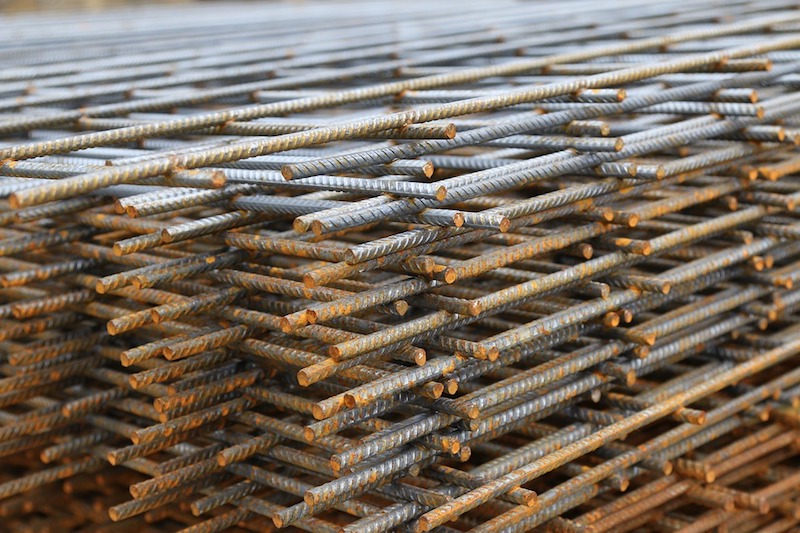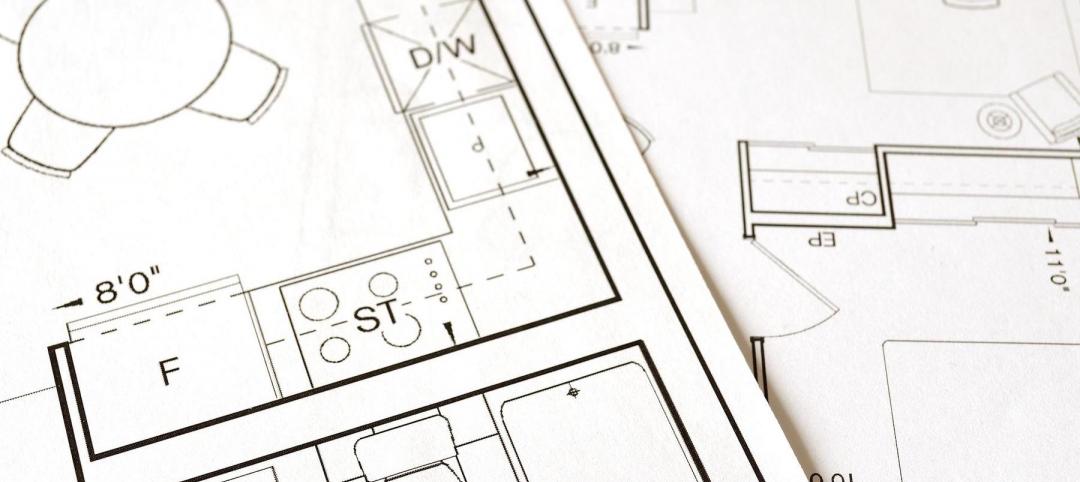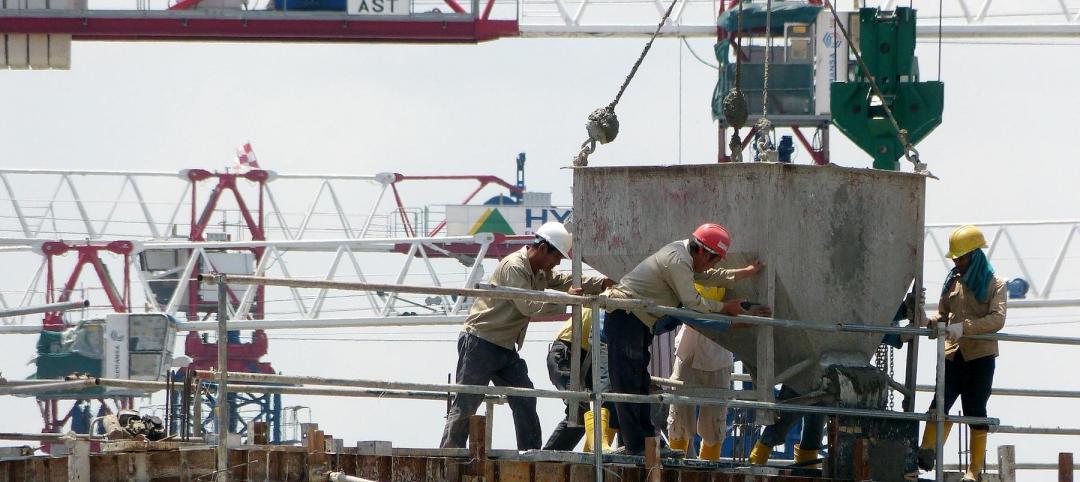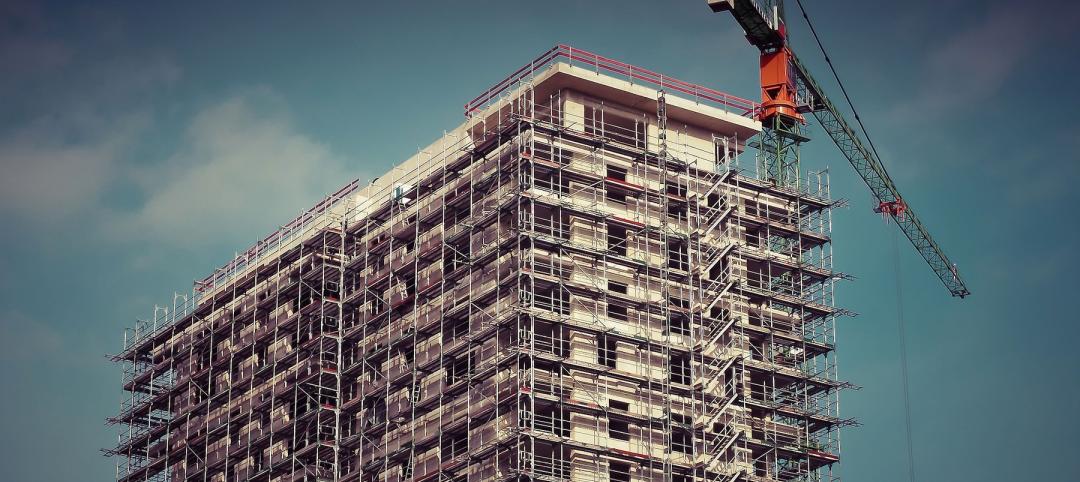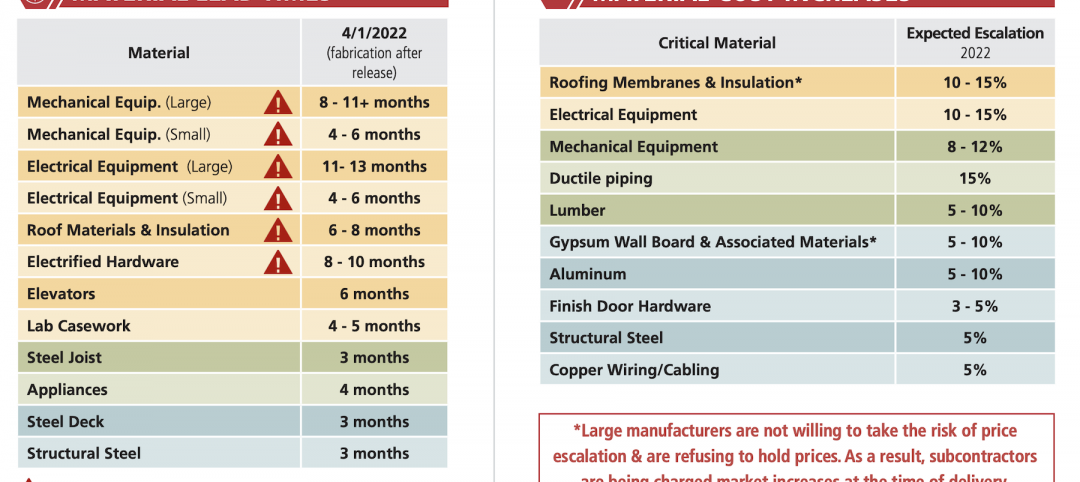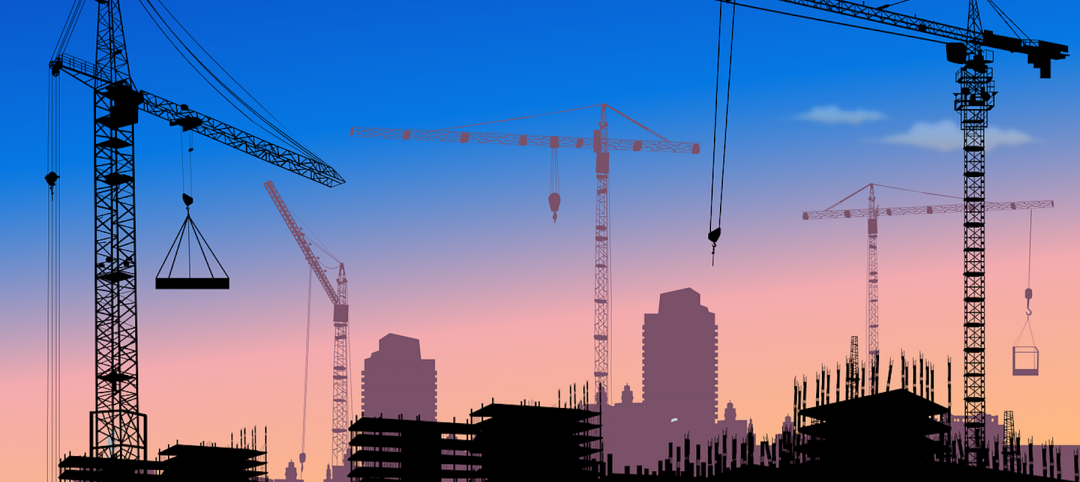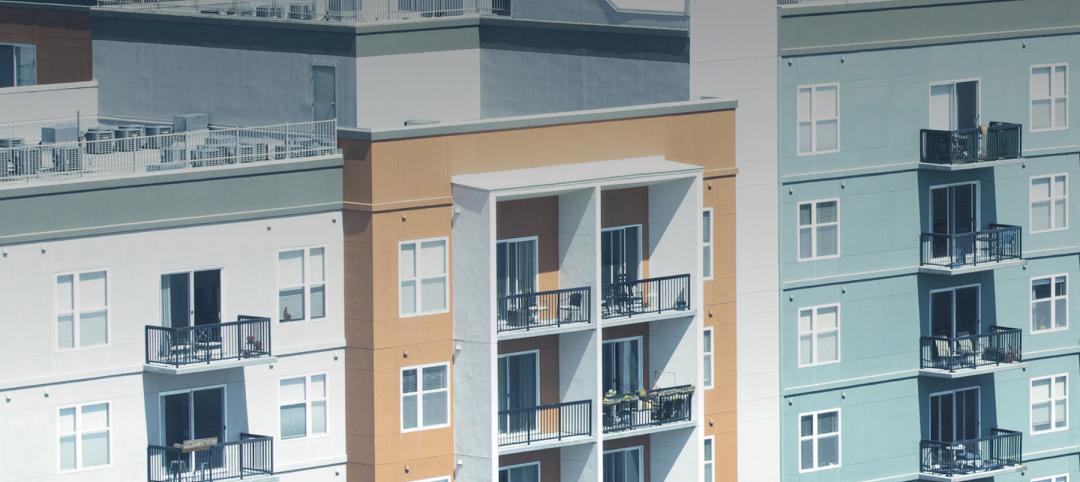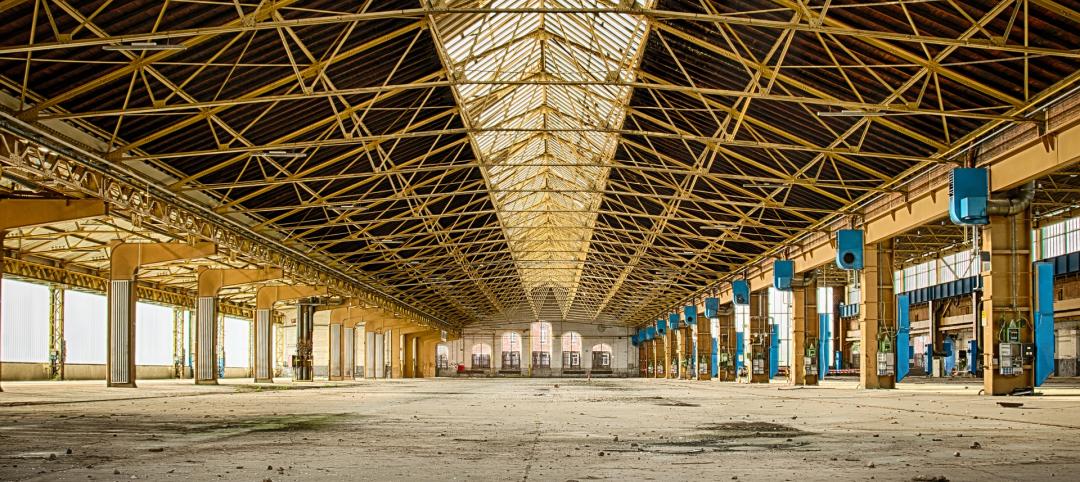Prices for inputs to construction fell 0.2% in July but are 9.5% higher than a year ago, according to an Associated Builders and Contractors analysis of U.S. Bureau of Labor Statistics data released today. Nonresidential construction input prices increased fell 0.3% in July but are up 9.6% year over year. Softwood lumber prices are up 19.5% from July 2017, while iron and steel prices are up 13.4%.
“The monthly decline in construction input prices registered in July represents a departure from the recent trend,” said ABC Chief Economist Anirban Basu. “As is often the case, the question for the economist is how much weight to place on the most recent data point.
“In this instance, placing significant weight on July's PPI release would be equivalent to suggesting that the surge in materials prices has ended,” said Basu. “Putting less weight on the most recent bit of data means that July represents a statistical aberration, and that prices will rise in ways similar to the period preceding July.
“Given the ongoing strength of the U.S. construction sector and ongoing trade tussles, it would be difficult to conclude that the rise in materials prices is over,” said Basu. “It may be the case, however, that the pace of increase in materials prices is set to slow as suppliers ramp up production of key inputs in the wake of higher prices and as the U.S. dollar remains strong. In any case, it is far too early for estimators, chief financial officers and others to conclude that the construction input inflation cycle is over.”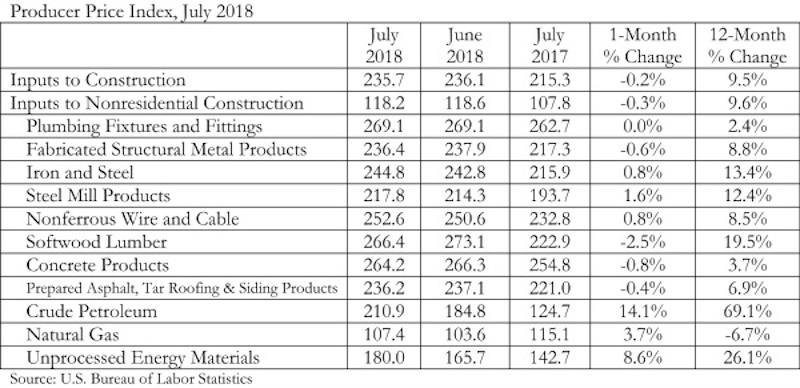
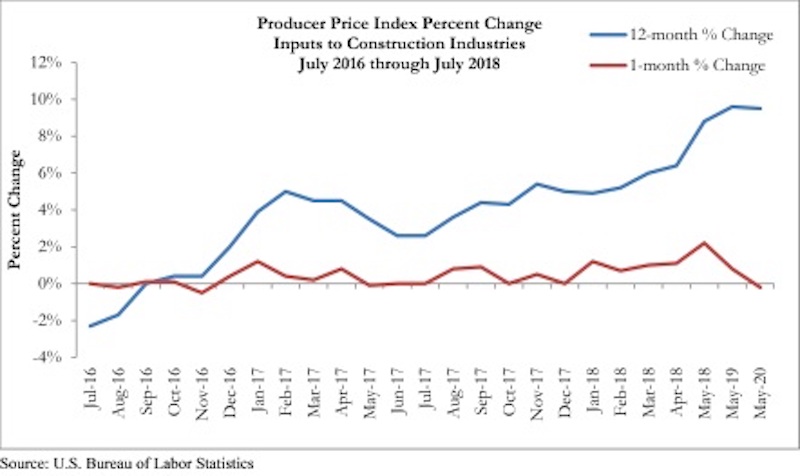
Related Stories
Market Data | May 18, 2022
Architecture Billings Index moderates slightly, remains strong
For the fifteenth consecutive month architecture firms reported increasing demand for design services in April, according to a new report today from The American Institute of Architects (AIA).
Market Data | May 12, 2022
Monthly construction input prices increase in April
Construction input prices increased 0.8% in April compared to the previous month, according to an Associated Builders and Contractors analysis of U.S. Bureau of Labor Statistics’ Producer Price Index data released today.
Market Data | May 10, 2022
Hybrid work could result in 20% less demand for office space
Global office demand could drop by between 10% and 20% as companies continue to develop policies around hybrid work arrangements, a Barclays analyst recently stated on CNBC.
Market Data | May 6, 2022
Nonresidential construction spending down 1% in March
National nonresidential construction spending was down 0.8% in March, according to an Associated Builders and Contractors analysis of data published today by the U.S. Census Bureau.
Market Data | Apr 29, 2022
Global forces push construction prices higher
Consigli’s latest forecast predicts high single-digit increases for this year.
Market Data | Apr 29, 2022
U.S. economy contracts, investment in structures down, says ABC
The U.S. economy contracted at a 1.4% annualized rate during the first quarter of 2022.
Market Data | Apr 20, 2022
Pace of demand for design services rapidly accelerates
Demand for design services in March expanded sharply from February according to a new report today from The American Institute of Architects (AIA).
Market Data | Apr 14, 2022
FMI 2022 construction spending forecast: 7% growth despite economic turmoil
Growth will be offset by inflation, supply chain snarls, a shortage of workers, project delays, and economic turmoil caused by international events such as the Russia-Ukraine war.
Industrial Facilities | Apr 14, 2022
JLL's take on the race for industrial space
In the previous decade, the inventory of industrial space couldn’t keep up with demand that was driven by the dual surges of the coronavirus and online shopping. Vacancies declined and rents rose. JLL has just published a research report on this sector called “The Race for Industrial Space.” Mehtab Randhawa, JLL’s Americas Head of Industrial Research, shares the highlights of a new report on the industrial sector's growth.
Codes and Standards | Apr 4, 2022
Construction of industrial space continues robust growth
Construction and development of new industrial space in the U.S. remains robust, with all signs pointing to another big year in this market segment


